What it’s really like to do IVF in Thailand, according to a fertility doctor
Dr Viwat from MedPark Hospital Bangkok explains the IVF experience in Thailand, from first consultation to the aftercare
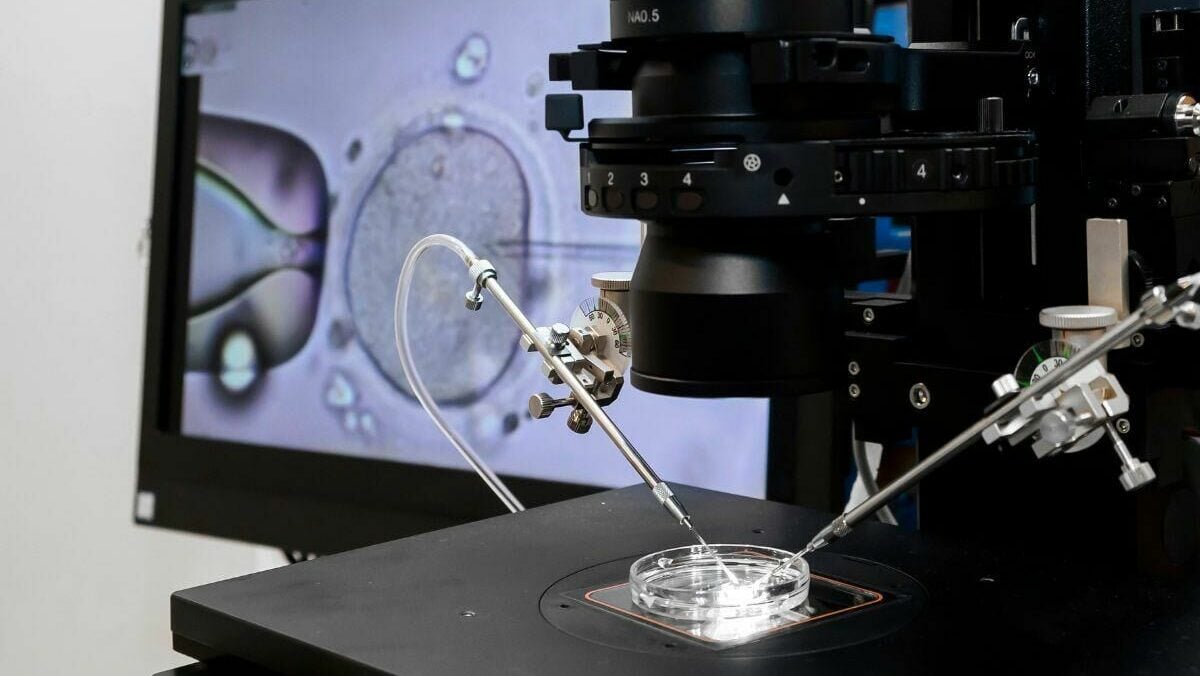
Assisted reproduction is a far more common part of modern motherhood than many people realise. Over 10 million babies have been born through in vitro fertilisation (IVF) across the globe and every year, another half a million join them.
But while it’s the most popular and effective assisted reproductive technology (ART), IVF is still seen as intimidating. Yes, the procedure can be physically taxing and mentally draining, but it has come a long way since the first IVF baby was born in 1978.
Dr Viwat Chinpilas, an obstetrician-gynecologist specialising in reproductive endocrinology at MedPark Hospital in Bangkok, said that IVF has become “so simplified but so successful.”
We sat down with him to get an inside look at the IVF experience in Thailand.
What happens during IVF in Thailand?
| Click to jump to section | Summary |
| Getting started | IVF begins with a full physical and psychological assessment of both partners to decide if IVF is necessary or if other treatments may help. |
| The process | A cycle lasts around 6–8 weeks. It includes hormone stimulation, egg retrieval under sedation, fertilisation in the lab, and embryo transfer. |
| Technology at MedPark | MedPark uses ICSI instead of traditional IVF, micro-TESE for male infertility, and time-lapse incubators with optional genetic screening (PGT-A). |
| Legal access | Only legally married heterosexual couples can access IVF in Thailand. LGBTQ+ couples are currently excluded under Thai law. |
| Failed past cycles | About half of patients had unsuccessful IVF elsewhere. MedPark offers detailed testing to adjust future treatments. |
| Emotional support | The clinic focuses on comfort and trust. Patients are encouraged to talk early, even before deciding on IVF. |
| Doctor’s advice | Dr Viwat stresses early consultation. Many patients stay in touch long after their child is born. |
The first step is making sure IVF is right for you
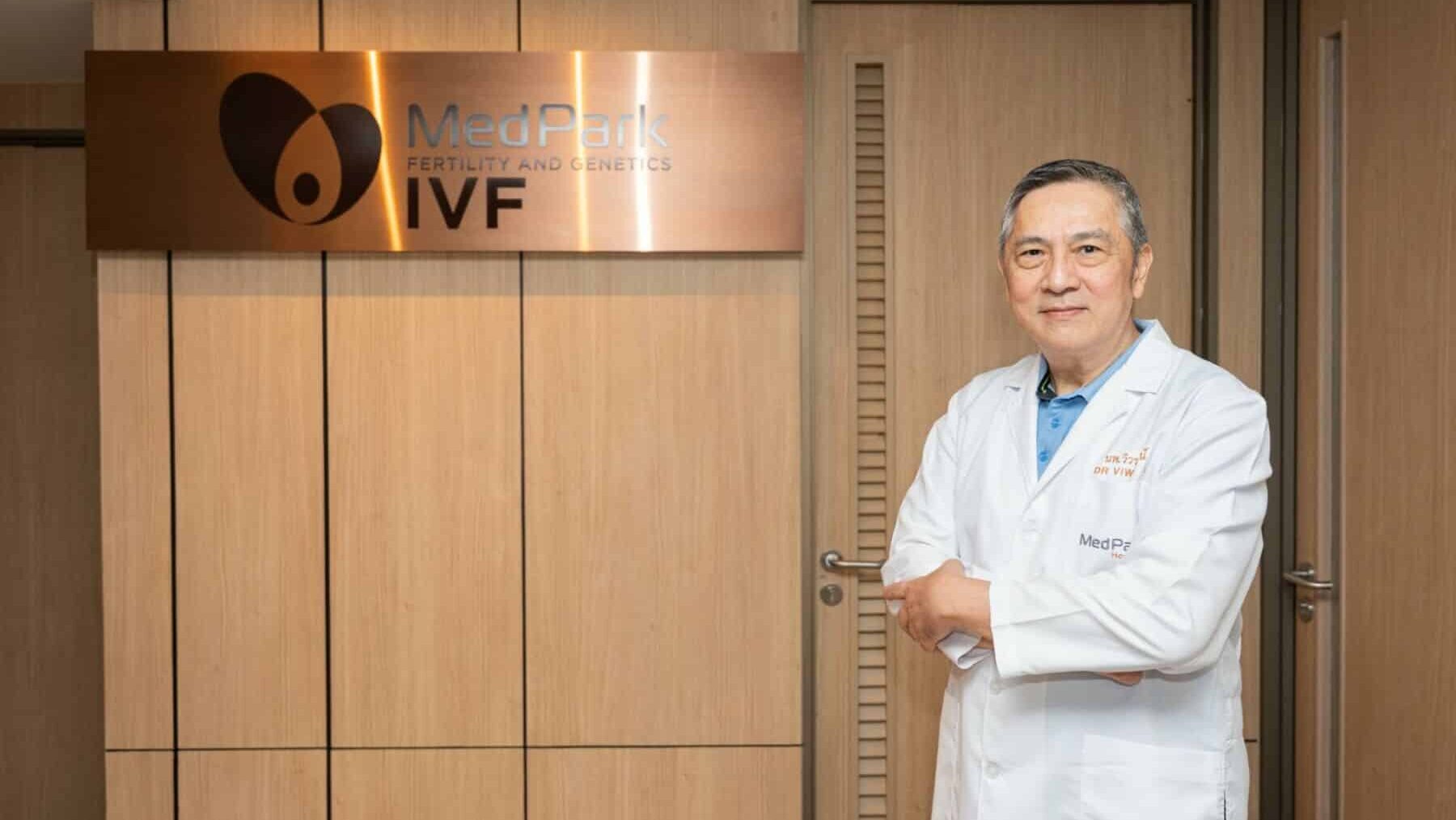
Before any hormones are given or eggs are collected, every couple starts with a full medical and psychological assessment. During this initial step, Dr Viwat and his team review each patient’s history and help determine if IVF is actually the right next step.
Sometimes, the issue can be treated in other ways, such as surgery, medication, or even just lifestyle changes. “We always look at whether there’s a way to fix the root cause before jumping into IVF. If we can solve the problem first, couples may conceive naturally,” he adds.
If IVF is recommended, you’ll need to prepare your body by adopting a healthier lifestyle. This includes making diet changes, exercising regularly, limiting alcohol, quitting smoking, taking supplements, and prioritising rest.
“Sleep is very important. We advise our patients to have a good sleep, which means that they need to go to bed before 11pm and have seven to eight hours sleep,” he advises.
The IVF cycle
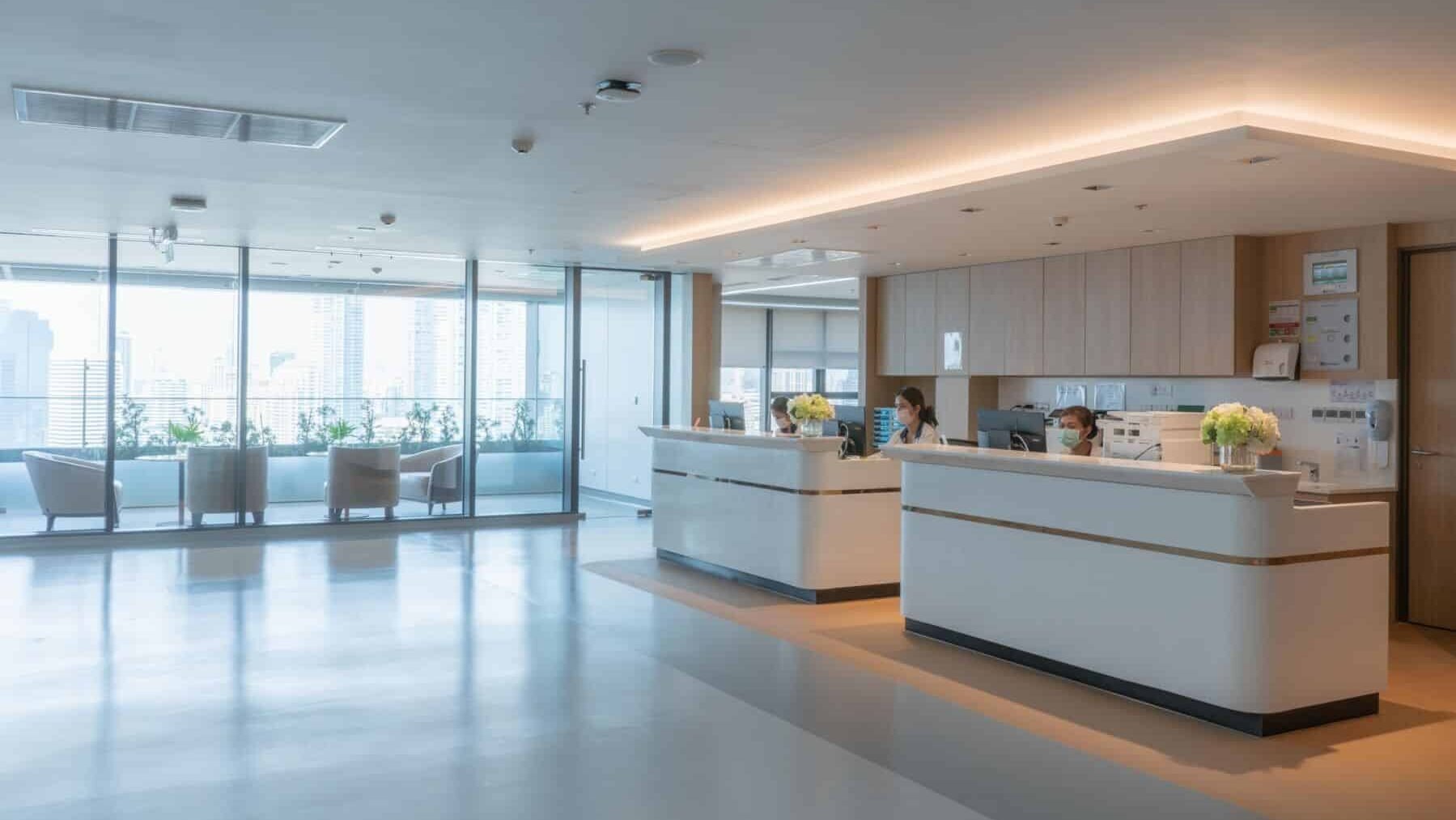
Once you decide to move forward with IVF in Thailand, you’ll start a cycle that typically takes around six to eight weeks. Each step can be adjusted to your needs, but most follow a similar structure.
It usually starts on the second day of your period, when you’ll come in for blood tests to check your hormone levels and an ultrasound to see how many follicles are there. This helps your doctor decide the right stimulation plan for you.
“We want to see 12 to 15 follicles. That gives the best chance of success,” says Dr Viwat.
From there, you’ll begin daily hormone injections to encourage your eggs to mature. It’s completely normal to feel nervous about this part, but you won’t be doing it alone. Your doctor will adjust the medication as needed, and you’ll be coming in regularly for scans and check-ups. After about 8 to 10 days, once your follicles are ready, you’ll receive a final injection to prepare for egg retrieval.
The egg retrieval is a short procedure done under sedation. Many women think this part is the scariest, but Dr Viwat reassures: “We collect the eggs gently while the patient is asleep, so it’s not painful.”
Once your eggs have been retrieved, they’re fertilised in the lab using your partner’s or donor’s sperm. The days that follow can feel long because you need to wait for the embryo to develop. But you’re given time to rest before returning for the embryo transfer, a simple and brief procedure that places the embryo into your uterus.
Roughly eleven days after the transfer, you’ll need to undergo a blood test to confirm whether the embryo has implanted and a pregnancy has begun.
Medpark Hospital uses next-gen tech to improve IVF outcomes
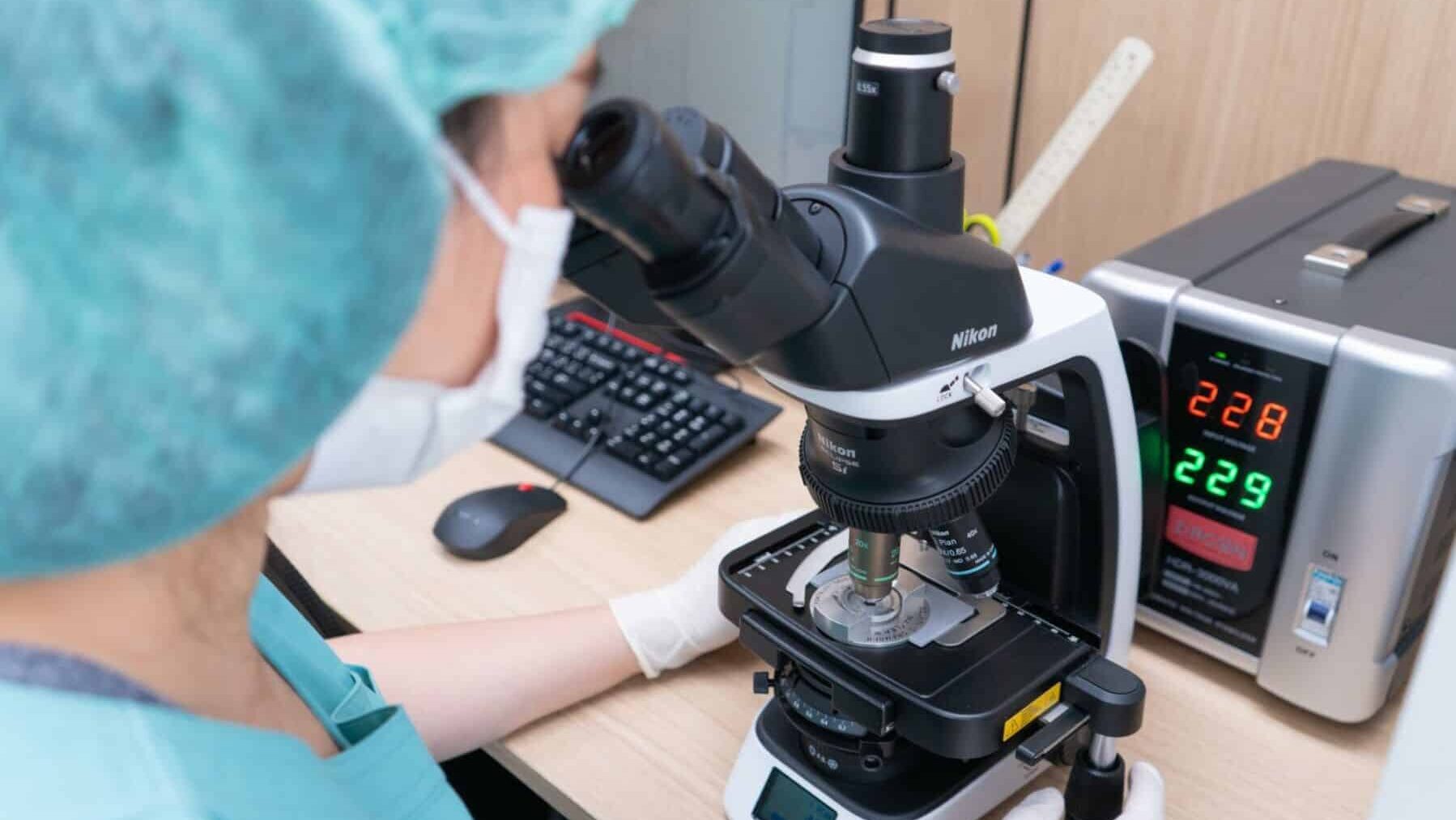
MedPark Hospital is among the few in Thailand that uses advanced technology in their IVF procedures to increase success rates. Conventional IVF, which allows sperm and egg to meet in a petri dish, is no longer used at the hospital. Instead, the team performs ICSI (intracytoplasmic sperm injection), where a single healthy sperm is selected and directly injected into each mature egg.
“With conventional IVF, we allow the sperm to fertilise the egg naturally in the lab. But there is a chance of complete fertilisation failure in five to ten per cent of cases,” he explains. “In a private setting, that is not acceptable. Patients pay a lot, and they deserve the best chance.”
MedPark is also one of the few hospitals in Thailand offering micro-TESE (microsurgical testicular spam extraction). It’s a highly specialised technique using microsurgery to retrieve sperm directly from the testicular tissue, even in men with genetic conditions such as Klinefelter syndrome.
As your embryos grow, they’re placed in a time-lapse incubator called an EmbryoScope, which allows the embryologists to monitor development without disturbing the delicate environment inside. And when embryos reach the blastocyst stage, you may be offered preimplantation genetic testing (PGT-A). This screens for chromosomal abnormalities and helps identify embryos with the highest chance of leading to a healthy pregnancy.
“Transferring a chromosomally normal embryo increases the chance of success to 55 or 60 per cent. It also lowers the risk of miscarriage to below five per cent,” Dr Viwat points out.
Even before a single injection, MedPark uses facial recognition software to confirm patient identity at multiple stages, from semen collection to embryo transfer, to eliminate any risk of error.
Can anyone undergo IVF in Thailand?
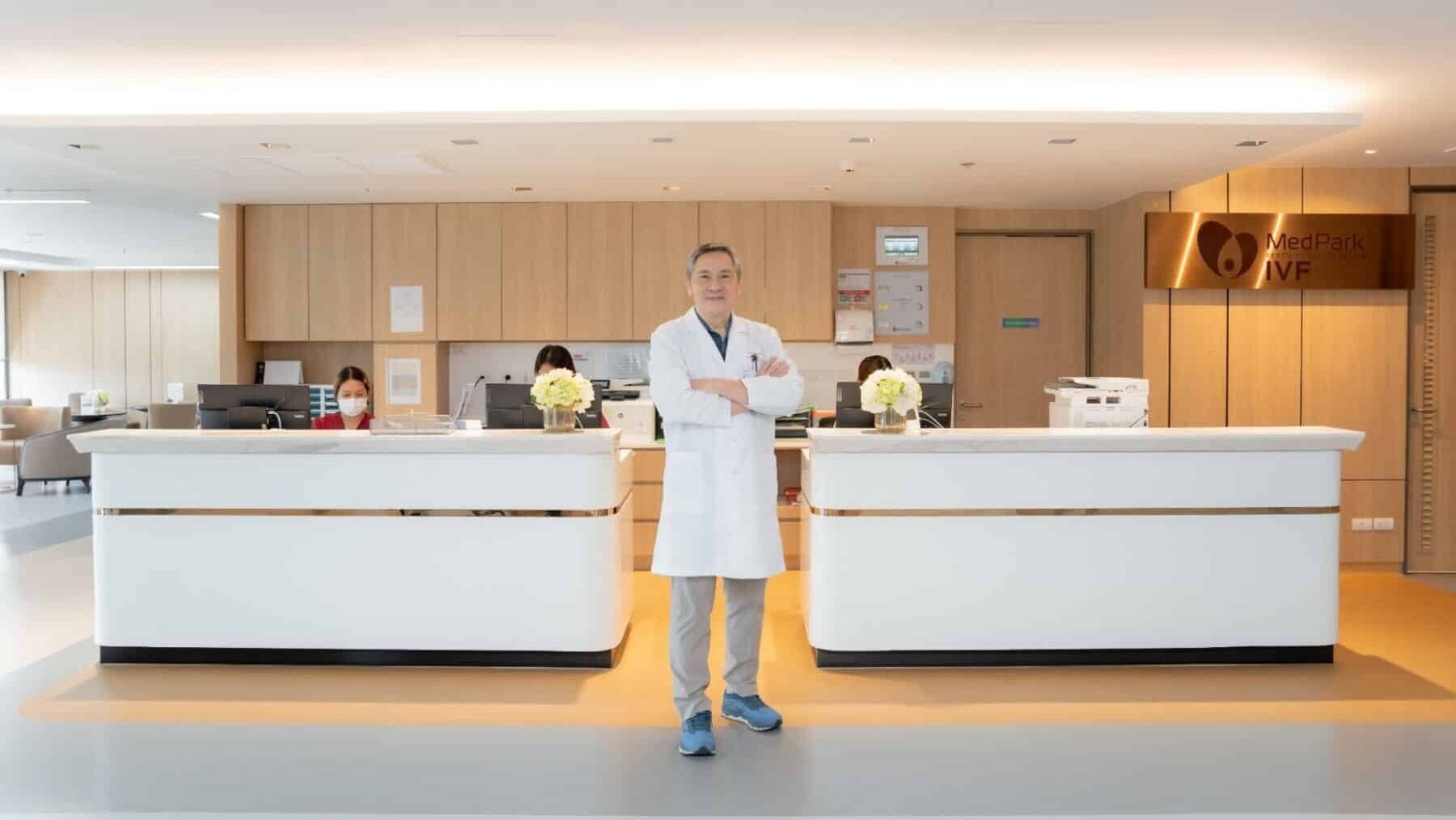
With more than 30 years in fertility care, Dr Viwat has seen all kinds of patients. Some have faced years of heartbreak, others are just beginning their journey, and many travel from overseas after encountering long waiting lists or legal restrictions at home. But can anyone undergo IVF in Thailand?
Unfortunately, the answer is no. Current Thai law permits IVF only for legally married heterosexual couples. While awareness is growing and calls for inclusivity are getting louder, especially after the legalisation of same-sex marriage earlier this year, LGBTQ+ couples are still unable to access IVF treatment under existing regulations.
“We’re hopeful for change, but at the moment, the law has not been updated,” shares Dr Viwat.
What if IVF didn’t work for you before?
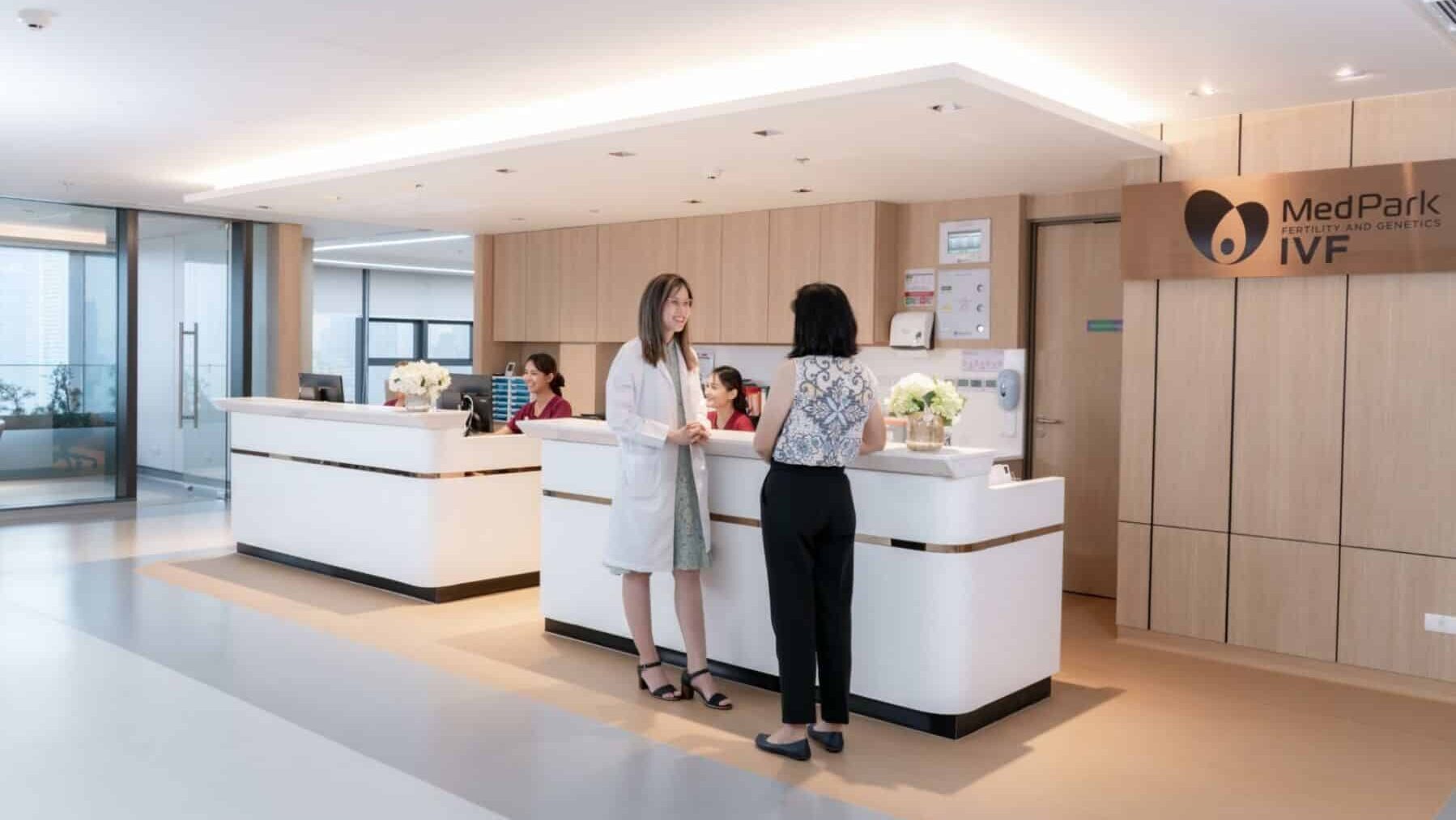
Many of MedPark’s patients are not new to IVF. According to Dr Viwat, about half have previously undergone treatment elsewhere that didn’t work. In those cases, the clinic does a full review to understand why.
“It could be the uterus, or the endometrium, or even antibodies against the embryo. We also look at the timing of implantation. Some women’s bodies are not receptive at the expected time,” he explains.
The team at MedPark uses a variety of tests to evaluate these issues, from immune profiles to endometrial biopsies. Once a cause is identified, the next round of IVF can be tailored accordingly.
But not every problem can be fixed. “If the patient has tried many times and there is still no success, we explain why. Some patients have fibroids throughout the uterus, making implantation impossible. Others may be in their late forties and want to keep trying with their own eggs. We have to be honest about their chances,” he clarifies.
How to deal with the emotional aspects of IVF
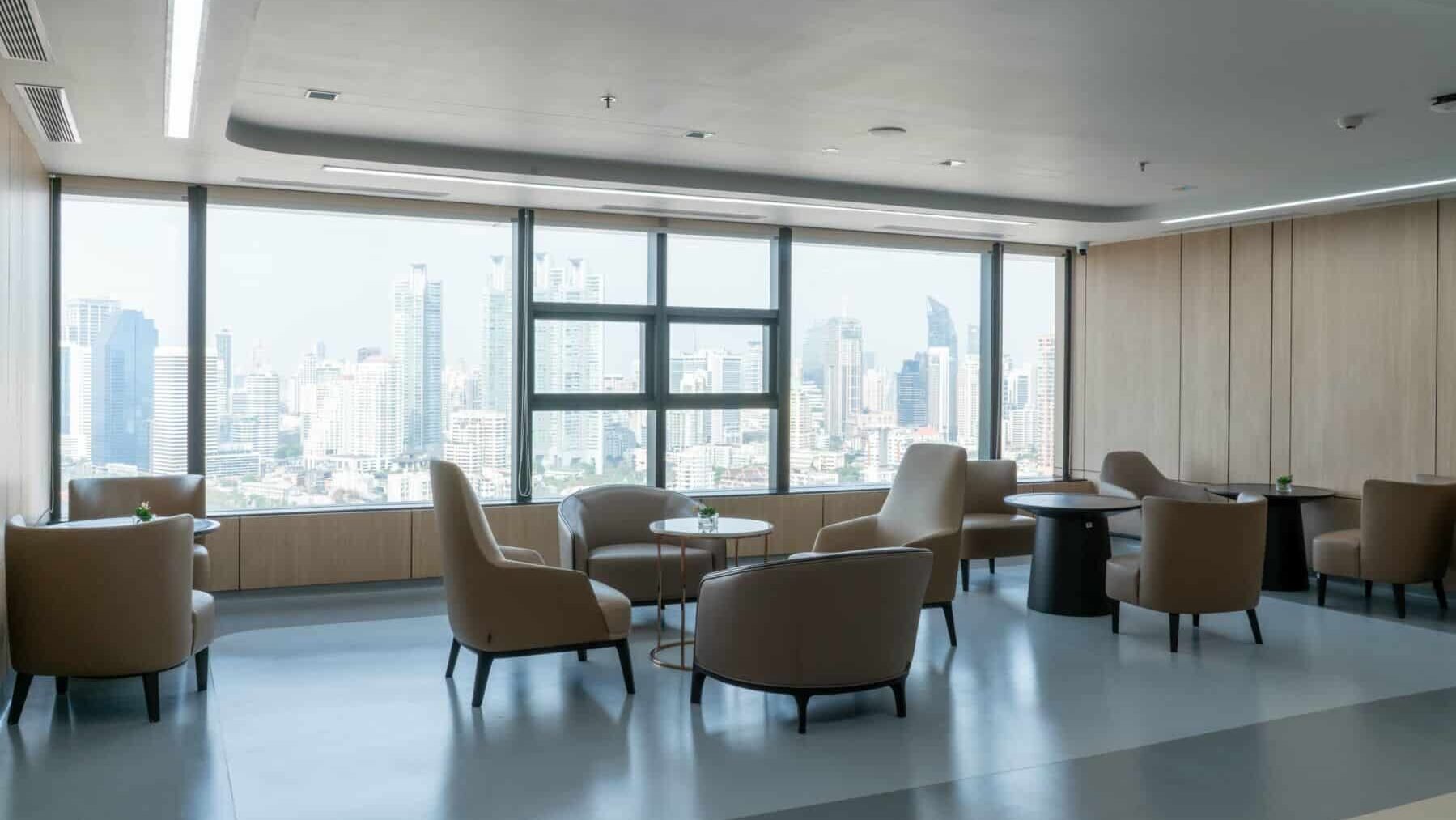
The medical side of IVF has become simpler and more efficient, but the emotional side remains complex. The whole process can feel like an overwhelming waiting game, especially when you are holding on to hope after months or even years of trying.
Dr Viwat mentioned that one of the most important things doctors can do is help patients feel informed and understood from the start. “When patients don’t have enough information, their imagination takes over. That imagination usually goes to the negative,” he notes.
He adds that building trust between doctor and patient is just as important as the lab work. “Before they start anything, they should come to talk,” he says. “If they feel comfortable with the doctor, the IVF journey will be a better one.”
The emotional aspect of IVF is also precisely why the fertility clinic at MedPark Hospital is designed to put people at ease. Located on the 20th floor, it feels more like a calm lounge than a hospital ward, with soft light, privacy, and views of Benjakitti Park.
Every detail is meant to lower stress, from the quiet waiting area to high-tech check-ins that use facial recognition to avoid mistakes. “It’s cosy, and not formal. We want people to feel relaxed, rather than tense,” he says when asked about the environment of the IVF clinic at MedPark Hospital.
Final advice from the doctor

Dr Viwat has treated thousands of couples over the years, and many still keep in touch. “It’s a relationship that continues after treatment. Even after many years, I still get updates. It’s a beautiful thing,” he mentions.
In a separate article published by MedPark Stories, he reflected, “I am happy and impressed every time parents bring their children to meet me.”
For Dr Viwat, IVF is never just a medical procedure. It’s about the lives waiting to be created, and the people who carry that hope. His final advice?
“If there’s one thing I wish people knew. It’s to come to see us early. Not just when they’re ready to start IVF, but when they’re starting to think about having children. Talking to a doctor early makes all the difference.”
To help make that first step easier, MedPark Hospital is offering The Thaiger readers a complimentary online consultation with an IVF specialist. To book yours, visit medpark.hospital/IVFTG.
Sponsored
Latest Thailand News
Follow The Thaiger on Google News:


























